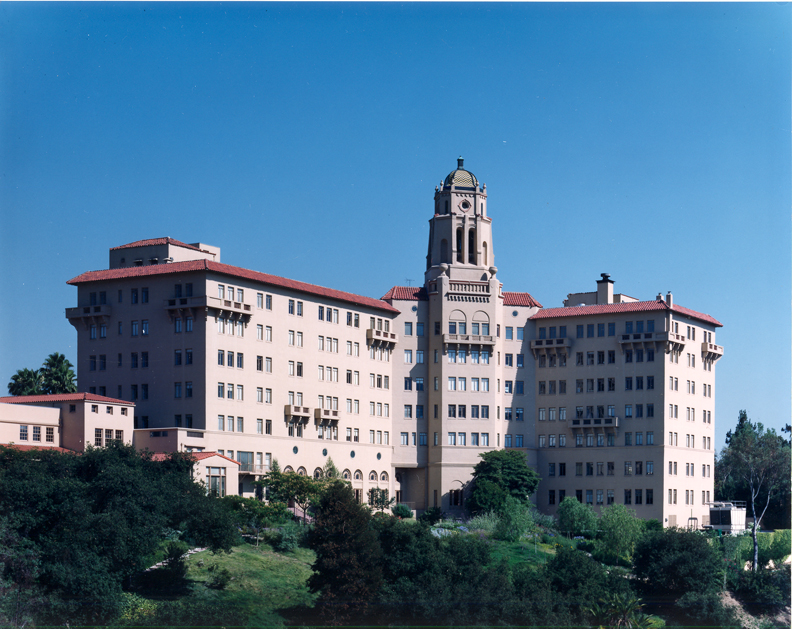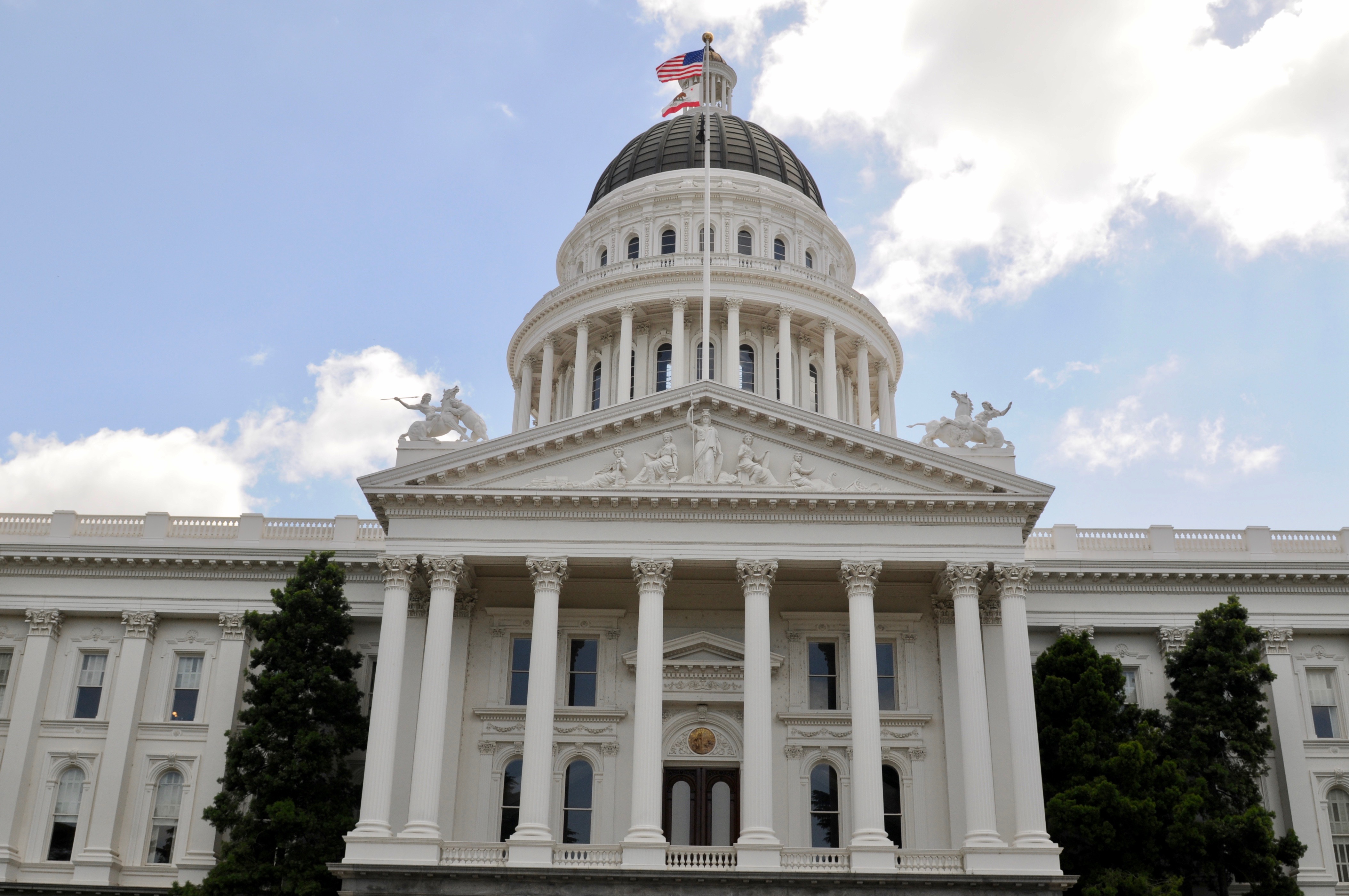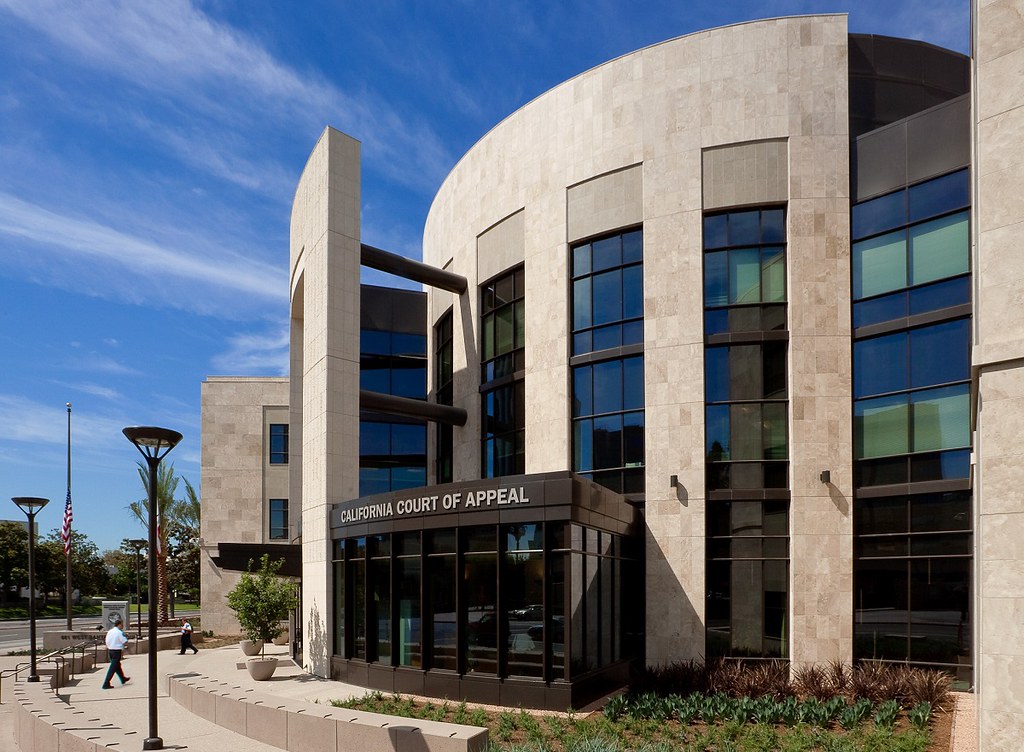
Richard H. Chambers United States Court of Appeals of the Ninth Circuit Courthouse. (Photo: gsa.gov)
Appeals Court Blocks Part Of California Child Safety Law
Legal experts said, despite the Governor’s statement, NetChoice was more of a winner
By Evan Symon, August 17, 2024 2:40 am
The Ninth Circuit Court of Appeals ruled on Friday that a court case challenging a law passed in late 2022 that was intended to protect the data and privacy of children online, that only part of the District Court injunction against it can still be held up.
Signed into law in September 2022 by the governor, AB 2273 established the California Age-Appropriate Design Code Act. Under the law, businesses that provide an online service, product, or feature likely to be accessed by children to have high privacy levels included as default and provide privacy information, terms of service, policies, and community standards concisely and prominently for those under 18 to read. In addition, companies would not be allowed to use a child’s personal information, from collecting, selling, or retaining a child’s geolocation, or from having children give personal information. The new law was supposed to have a start date of July 1, 2024.
However, NetChoice, a large tech industry group that represents companies such as Amazon, Google, Meta, and TikTok, opposed the law. They pointed out several first amendment issues with the law, as well as infringing on the editorial rights of different websites. Also noted was that possible verification techniques could be even riskier for children, who may give up vulnerable information as a result of simply accessing different websites.
As a result, NetChoice sued the state of California in December. In NetChoice v. Bonta, the group argues that AB 2273, also known as the California Age-Appropriate Design Code Act, violates the first amendment by “hobbling” free speech and that companies would be severely restricted in the editorial decisions over what content they put out on their sites. They also note that the law would lead to over-moderation of content, having the companies “serve as roving censors of speech on the Internet.” The age verification features under the law were also charged with frustrating anonymous and casual browsing and hurting privacy concerns of users.
While Newson, Bonta and other supporters condemned the lawsuit, courts quickly sided with NetChoice. Last September, a District Court sided with NetChoice, issuing an injunction against the law. The state quickly appealed the ruling, leading into yet another long legal battle going into 2024. On Friday, a panel of judges on the Ninth Circuit Court of Appeals finally issued a ruling.
Part of the District Court injunction was held. Specifically, the court said that “a requirement that online businesses opine on and mitigate the risk that children may be exposed to harmful or potentially harmful materials online” violated the first amendment, with the preliminary injunction being held against that part of the law. However, the rest of the ruling sent it back to the lower court, as it was unclear if it too was unconstitutional and violated the first amendment.
NetChoice v. Bonta
Circuit Judge Milan Smith wrote in the ruling that “Requiring the forced creation and disclosure of highly subjective opinions about content-related harms to children is unnecessary for fostering a proactive environment in which companies, the state and the general public work to protect children’s safety online.”
Both the state and NetChoice declared victory in the Appeals ruling on Friday. In a statement, Governor Gavin Newsom said that the Ninth Circuit Court of Appeals’ decision in NetChoice v. Bonta found that NetChoice did not demonstrate they were likely to succeed in showing that the majority of California’s Age-Appropriate Design Code Act is unconstitutional.”
“California enacted this nation-leading law to shield kids from predatory practices,” said Newsom. “Instead of adopting these commonsense protections, NetChoice chose to sue — yet today, the Court largely sided with us. It’s time for NetChoice to drop this reckless lawsuit and support safeguards that protect our kids’ safety and privacy.”
Attorney General Bonta added, “We’re pleased that the Ninth Circuit reversed the majority of the district court’s injunction, which blocked California’s Age-Appropriate Design Code Act from going into effect. The California Department of Justice remains committed to protecting our kids’ privacy and safety from companies that seek to exploit their online experiences for profit.”
Meanwhile, NetChoice Litigation Center Director Chris Marchese said that “The decision is a victory for free expression, online security and Californian families. The court recognized that California’s government cannot commandeer private businesses to censor lawful content online or to restrict access to it.”
Overall, legal experts said that, despite the state’s statement, NetChoice was more of a winner on Friday.
“This is like an NFL team celebrating a tie,” explained Gil Patterson, a tech lawyer in Silicon Valley, to the Globe on Friday. “The state didn’t win anything, and in fact, the court held up the main part of it for NetChoice. This is by no means over, and if anything, NetChoice still has the higher ground here. The state didn’t outright lose, but by no means is the law coming into place anytime soon. It is still going to be fought in the courts.”
- Bill to Require Law Enforcement Disclosure if AI Was Used To Help Write Reports - August 7, 2025
- Gov. Newsom Files FOIA Request To ‘Expose True Cost’ Of L.A. Federal Troop Deployment for Anti-ICE Riots - August 6, 2025
- California Redistricting: How Newsom’s Plan Will Demolish Hard Fought GOP Gains - August 6, 2025





This is really rich. The deniers of 1st Amendment rights, protesting that THEIR 1st Amendment rights are being Violated!
What are the primary concerns NetChoice has regarding the new law?